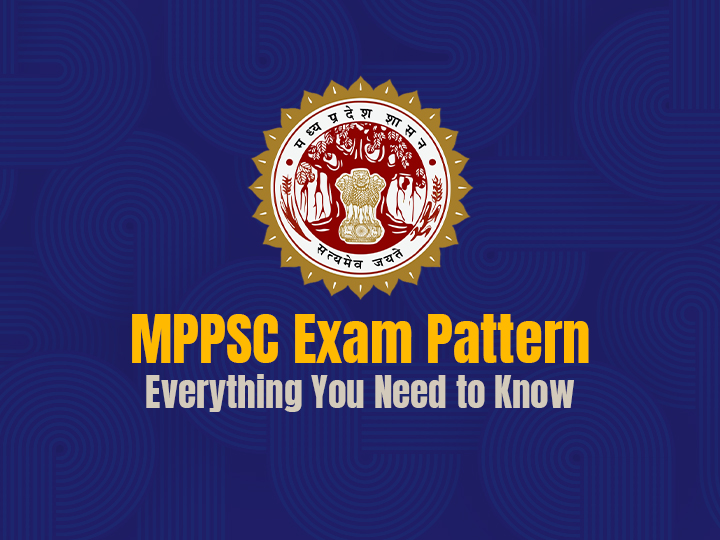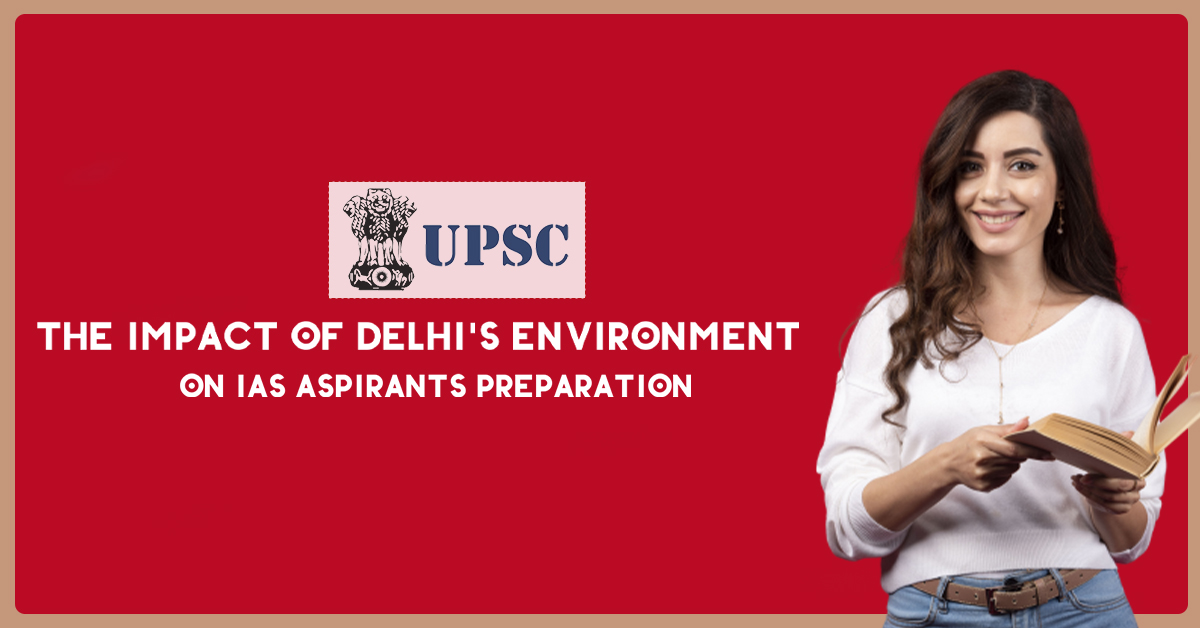If you’re an aspiring civil servant in Madhya Pradesh, then you have to go through the MPPSC exam. It is one of the toughest and most prestigious exams in the state. But before even thinking about taking on this challenge, it’s important that you know everything about its exam pattern.
To help you with that, we reached out to Vajirao IAS Academy – a distinguished coaching center for civil service aspirants – to gather all the necessary information. In this article, we will be discussing the MPPSC exam pattern in detail and how Vajirao IAS Academy, the best IAS Coaching Institute in Indore can assist you with your preparations.
Madhya Pradesh Public Service Commission (MPPSC) exam is one of the most challenging in India. It requires a lot of effort, dedication, and preparation, in order to pass this exam. If you are looking for guidance and support for your MPPSC preparation, then Vajirao IAS Academy is the best MPPSC coaching center in Indore.
The MPPSC exam consists of three stages: Preliminary Examination, Main Examination, and Interview. The Preliminary examination comprises two papers – General Studies Paper-I and General Studies Paper-II. Both papers carry 200 marks each with duration of two hours each. The Main examination has six papers that are descriptive in nature and require critical thinking skills to solve them.
Overview of MPPSC exam
The Madhya Pradesh Public Service Commission (MPPSC) conducts various exams to recruit candidates for different government positions in the state. The most popular exam conducted by MPPSC is the State Service Examination, which recruits candidates for various administrative positions such as Deputy Collector, Deputy Superintendent of Police, and Assistant Director. The examination is conducted in three stages – Preliminary, Mains and Interview.
The Preliminary examination consists of two objective-type question papers with multiple-choice questions. The first paper covers General Studies and the second one covers Aptitude Test. Candidates who qualify for the preliminary stage can take up the mains examination which comprises six subjective-type question papers based on General Studies and optional subjects chosen by them.
The final stage is a personal interview where candidates’ communication skills, personality traits, and leadership qualities are evaluated by a board of experts. Knowing about the MPPSC Exam Pattern will help you prepare efficiently for each stage of the exam so that you can clear it with ease and achieve your dream career goals in government service.
MPPSC exam pattern:
The MPPSC (Madhya Pradesh Public Service Commission) exam is conducted in three stages: Prelims, Mains, and Interview. The Prelims consists of two papers – General Studies and Aptitude Test – both having objective-type questions. The mains consist of six papers that are descriptive in nature, including four General Studies papers, an essay paper, and a language paper.
The interview stage holds 175 marks allocated to assess the candidate’s personality traits such as leadership qualities, social behaviour, communication skills etc. It should be noted that the mains exam will only be evaluated if the candidate scores above the specified cut-off marks in prelims. Also worth noting is that there are negative markings for wrong answers attempted in both the prelims and mains stages but no negative marking for unanswered questions.
To conclude, candidates who aspire to clear this exam must have strong conceptual knowledge of their respective fields along with good analytical skills to crack it successfully as it demands more than just rote learning or memorizing facts.
Structure and marking scheme
The MPPSC exam pattern is designed to assess the candidates’ knowledge and aptitude for various administrative roles in Madhya Pradesh. The examination consists of three stages- Preliminary, Main, and Interview. Each stage has its own specific marking scheme and structure.
In the preliminary stage, there are two objective-type papers that carry a total of 400 marks. Paper-I contains questions on general studies while Paper-II tests the candidates’ aptitude in language comprehension, logical reasoning, and mental ability. For every correct answer, candidates get two marks whereas for an incorrect answer one-third mark will be deducted as penalty.
The main examination is conducted in written mode where each paper carries 300 marks. There are six compulsory papers that cover topics such as general studies I & II, Hindi language, English language with essay writing skills, science & technology and environment & ecology. Additionally, there are two optional papers that carry 300 marks each which can be chosen by the candidate based on their interests or academic background. The interview stage carries a total of 175 marks where personality traits such as communication skills and problem-solving abilities are assessed by the panel members.
Paper-wise breakup:
The MPPSC Exam is a state-level examination conducted by the Madhya Pradesh Public Service Commission (MPPSC) for recruitment to various government posts. The exam consists of two stages: Preliminary and Main. The preliminary stage has two papers, Paper I and Paper II, both of which are objective-type questions.
Paper-wise breakup of MPPSC prelims goes like this: In Paper I, General Studies, there are 100 questions worth 200 marks and the duration is two hours. Topics included in this paper are History of India and Independent India, Geography of India, Indian Polity and Economy, Sports, Environment & Ecology etc.
In Paper-II or CSAT (Civil Services Aptitude Test), there are 80 questions worth 200 marks with a duration of two hours as well. This paper assesses the candidate’s decision-making skills and problem-solving abilities through areas such as Comprehension Reasoning and Analytical Ability Logical Reasoning Data Interpretation etc. Candidates must obtain at least 33% marks in each paper to clear the prelims exam before moving on to the main examination stage.
Details of each paper and marks
The Madhya Pradesh Public Service Commission (MPPSC) conducts a range of examination to recruit candidates for various posts in the state government. Each exam has its own specific pattern and marking scheme, so it is important for applicants to understand the details of each paper and how marks are allocated.
For example, in the State Service Exam, there are two compulsory papers – General Studies I and General Studies II – each worth 200 marks. The General Studies I paper covers topics such as Indian History and Culture, Geography of India and World, Indian Polity and Governance, Economic & Sustainable Development, Science & Technology etc., while General Studies II focuses on topics like Comprehension; Interpersonal skill including communication skills; Logical reasoning & analytical ability; Decision making& problem-solving; Basic numeracy (numbers and their relations, orders of magnitude etc); Data interpretation (charts, graphs, tables etc.) In addition to these papers there are optional papers too with varying number of papers depending on the subject.
The MPPSC also conducts exams for various other positions such as Forest Ranger Officer or Assistant Professor. The Forest Ranger Officer Exam consists of two written exams – Paper I which includes questions from subjects like Mathematics, Reasoning Ability Skills along with English Language Comprehension whereas Paper II covers technical subjects related to Agriculture/Horticulture/Forestry/Wildlife Science.
Syllabus coverage:
The syllabus coverage of any competitive exam plays a crucial role in devising a study plan. The MPPSC (Madhya Pradesh Public Service Commission) exam is no exception to this rule. The MPPSC exam comprises three stages – Preliminary, Main, and Interview rounds. The Preliminary round consists of two papers, each carrying 200 marks. Paper-1 tests the general aptitude and Paper-2 assesses the candidate’s knowledge in areas such as polity, economy, current affairs, history, geography, etc.
In the Main round of the MPPSC exam, there are six papers with varying weightage and syllabus coverage. These include General Studies I & II (carry 300 marks each), General Studies III & IV (carry 200 marks each), Hindi language paper (carries 200 marks), and an optional subject paper (carries 400 marks). The optional subject can be chosen by candidates from a pre-determined list provided by the Commission.
Aspirants should note that not only do they need to cover extensive topics for all these stages but also maintain consistency throughout their preparation journey. Therefore it is advisable to follow a structured approach while studying for this examination and cover every topic mentioned in the prescribed syllabus meticulously.
Topics covered in each paper
The MPPSC exam pattern comprises three stages- Prelims, Mains, and Interview. The preliminary examination is an objective type paper consisting of two papers: General Studies I and General Studies II (Aptitude Test). Both papers carry 200 marks each with a time duration of 2 hours each. The General Studies I paper consists of topics such as Indian History and National Movement, Geography, Indian Polity and Governance, International Relations and Current Events, etc. On the other hand, the General Studies II paper tests the candidate’s aptitude skills in areas like Logical Reasoning and Analytical Ability.
The Mains Examination consists of seven papers- four compulsory papers (General Hindi, Essay Writing in Hindi & English) carrying 300 marks each with a time duration of 3 hours each. Additionally, there are three optional subject papers with two subjects to be selected for each paper from a list provided by the commission. Each optional subject carries 300 marks with a time duration of 3 hours each.
Finally comes the Interview round which carries a total of 175 marks where candidates are evaluated on their personality traits like confidence level, communication ability, logical reasoning ability among others. It is essential for candidates to prepare well for all these stages as they determine one’s final selection into various posts offered by Madhya Pradesh Public Service Commission (MPPSC).
Tips to crack MPPSC exam:
The Madhya Pradesh Public Service Commission (MPPSC) exam is one of the most competitive exams in India. The exam is conducted for various posts such as Deputy Collector, Deputy Superintendent of Police, Assistant Director, and others. It is a dream for many aspirants to crack this exam and secure a government job. However, cracking the MPPSC exam requires hard work, dedication, and smart preparation.
One of the first steps in cracking the MPPSC exam is to understand its pattern thoroughly. The exam consists of three stages: Preliminary Exam (objective type), Main Exam (written test), and Interview. Each stage has its own syllabus and criteria for selection. Therefore it’s important to understand each stage’s pattern before preparing yourself for the same.
Another vital tip that can help you crack this tough nut is to make a proper study plan & stick with it religiously. You should schedule your preparation based on subjects; give equal importance to all topics in the syllabus while allocating time slots accordingly. Also, create some space for revision sessions so that you can revise old topics from time to time.
Lastly, practice makes perfect! Solving previous year question papers & mock tests of the best MPPSC Coaching Institute in Indore can help you understand your level of preparation better & improve your speed along with accuracy in problem-solving skills required during exams.
Preparation strategies and tips
- Develop a solid study schedule: One of the most important preparation strategies is to create a study schedule and stick to it. This will help you prioritize your time and ensure that you cover all the necessary topics before exam day. Start by identifying your weakest areas and allocating more time to them.
- Utilize online resources: There are numerous online platforms where you can access MPPSC exam materials such as past papers, mock exams, and study guides. Take advantage of these resources as they can provide valuable insights on the types of questions asked in previous exams, useful tips on how to approach different question formats, and suggestions on effective revision techniques.
- Stay focused and motivated: Exam preparation can be mentally draining, especially if you have other commitments like work or family responsibilities. To stay motivated throughout the process, set realistic goals for yourself that aligns with your overall objectives. Celebrate small wins along the way to keep up the momentum and focus on why passing this exam is important for your career growth prospects.
Important dates and deadlines:
The MPPSC exam is one of the most sought-after exams in Madhya Pradesh. Aspirants preparing for the exam must be aware of important dates and deadlines to avoid missing out on anything significant. The MPPSC releases a notification every year, which includes details about important dates, such as application release date, last date to apply, and exam date.
It is crucial for aspirants to keep track of these dates and plan their preparation accordingly. Missing out on any deadline can lead to disqualification from the exam or being unable to appear for it altogether. It is recommended that candidates start preparing well before the application release date so that they can submit their applications early and avoid any last-minute rush.
Moreover, candidates should also keep themselves updated with any changes in the schedule or deadlines that may occur due to unforeseen circumstances. This will help them stay ahead in their preparation and ensure they don’t miss out on anything important. Therefore, it is essential for MPPSC aspirants to mark all important dates on their calendars and set reminders so they can stay on top of things throughout the preparation process.
Application, admit card, result dates
MPPSC (Madhya Pradesh Public Service Commission) is responsible for conducting various state-level exams, including the State Civil Services Examination. The application process for these exams usually begins in the month of December and January, while the exam is conducted in February or March. Candidates can apply online by filling out their personal details, uploading their photographs and signature, and paying the required fees.
The admit cards for MPPSC exams are released a few weeks before the exam date. Candidates can download their admit cards from the official website using their registration number and password. It is important to carry a printout of the admit card to the examination center, as it serves as proof of identity.
The results for MPPSC exams are usually declared within 2-3 months after the exam date. Candidates can check their results on the official website by entering their roll number and other required details. Those who qualify for the written test will be called for an interview round, which is usually conducted a few weeks after result declaration. Overall, candidates must keep track of all dates related to MPPSC exams to avoid missing out on any crucial deadlines.
Conclusion:
In conclusion, the MPPSC exam pattern is designed to test a candidate’s knowledge and aptitude in various fields. The preliminary examination consists of two papers, one on general studies and the other on aptitude. The mains examination comprises six papers, including four general studies papers, one language paper, and an optional subject paper.
Candidates must prepare thoroughly for both the prelims and mains exams with the best MPPSC Coaching Centers in Indore to secure a good rank. They should solve previous year question papers and take mock tests regularly to improve their speed and accuracy. Time management is also crucial during the exam because each paper has a specific time limit.
Overall, the MPPSC exam pattern demands dedication, hard work, and smart preparation from candidates who aspire to crack it. With proper planning and execution of strategies, candidates can easily achieve success in this highly competitive examination.




